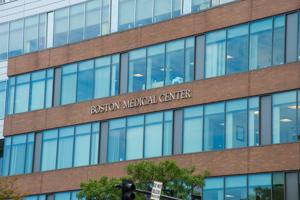Sometimes children are born with, or develop, problems with their hearts, called cardiac disease. For children with cardiac disease, the pediatric cardiology team at Boston Medical Center provides non-invasive cardiac care, and collaborates with Boston Children’s Hospital if an intervention is needed.
The pediatric cardiology team not only provides inpatient and outpatient care, they work closely with many other medical specialties at BMC, especially pediatric primary care, neonatology, obstetrics, and adult cardiology to provide care for children with:
- Congenital heart disease
- Acquired heart disease
- Kawasaki disease
- Rheumatic fever
- Arrhythmias
- Heart murmurs
- Chest pain
- Syncope (fainting)
- Hypertension
- Hyperlipidemia
Contact Us
Monday, Wednesday, Friday: 8:00 AM - 5:30PM Tuesday, Thursday 8:00 AM - 8:00 PM
Programs and Services
Pediatric Preventive Cardiology Clinic
Conditions We Treat
Diagnostics and Tests
Our Team
Sharon E O'Brien, MD

Meena Bolourchi, MD

Sepehr Sekhavat, MD

Elizabeth S. Yellen, MD

Nikhil Thatte, MBBS

Additional Team Members:
Amrit Misra, MD, Adult Congenital Heart Disease

